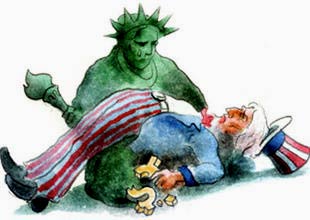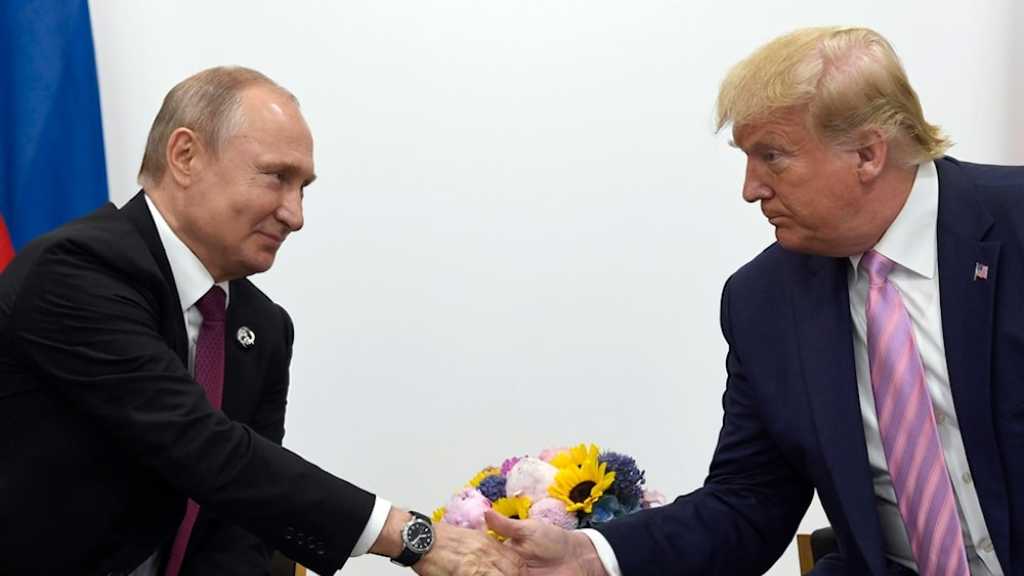The End of Influence: What Happens When Other Countries Have America’s Money?

America finds itself cash poor, and to a great extent, power follows money. A new book explores the grave consequences this loss will have for America's place in the world.
By Stephen S. Cohen and J. Bradford DeLong
ICH/Alternet, 11-02-2010
Alternet Editor's Note: America's leading role in the international economy is waning as other world powers find themselves holding onto trillions in U.S. debt. Recently, former Treasury Secretary Hank Paulson's claimed in his new book that Russian officials encouraged the Chinese to ditch their Fannie Mae and Freddie Mac bonds in 2008 in an attempt to make the United States bail out the troubled mortgage giants. (Russia that year sold all of the bonds it had in both public firms.) And then a few days later came news that Chinese military officers have proposed that their country sell some U.S. bonds to punish Washington for its latest round of arms sales to Taiwan. Power follows money, and Stephen S. Cohen and J. Bradford DeLong's new book The End of Influence: What Happens When Other Countries Have the Money (excerpted below) explores what will happen in this new world, where other countries have America's money.
For more than a quarter century now the countries of the world have been dreaming the neoliberals' dream. They have been trying to shrink their states back to their core competencies to promote economic efficiency, global economic integration, and growth, and to slash through red tape, rent-seeking, and simple corruption. They have been actively privatizing state holdings. They have hugely reduced their ownership and their active involvement in "national champion" companies. They have cut back on interventions to affect market outcomes and on regulation to scrutinize and control market players.
But now they are waking up. And the neoliberals' dream is at an end.
To understand why, we need to journey back to the mid-20th century. The coming of World War II ensured that whatever money still remained in Britain left quickly. Franklin Delano Roosevelt ruled an isolationist country that he wished to cajole into engaging in the war with Hitler as early and as completely as he could. But part of Roosevelt's strategy (and a not-altogether unwelcome consequence, for many who worked in the State, War, and Navy Building-a Victorian-era structure just west of the White House that looked like a French brothel) was to make Britain broke before American taxpayers' money was committed in any way to the fight against Hitler. Only after Britain had sold off the family silver to pay for the nozzle would America "lend" Britain its garden hose to fight the Hitlerian fire.
America did come to the aid of its closest, cherished, and most important embattled overseas ally after Britain was broke. The Grand Alliance was the great moment in the grand story of the English-speaking nations. It does remain Churchillian in the inherited grandeur of its narrative. And America did come to the rescue of England, and together-with enormous although unloved assistance from the Red Army of the Soviet Union and Josef Stalin- America did save the world from the horrors of the Nazis. But while we were gearing up to come to the rescue, we squeezed the British, and when World War II was over, the United States, not Britain, had the money. When the British borrowed money from us, it had to be repaid in dollars, not in sterling. And imports into Britain had to be rationed well into the 1950s.
Will the United States be similarly squeezed? No. We are not engaged in a total war. We do not domestically produce only 1,200 calories of food per citizen per day. We are still by far the world's largest national economy. The United States is technologically powerful and resourceful and is still the center of world finance. World finance is still transacted in dollars. And the United States remains the world's only military superpower, whatever that may turn out to mean.
But the United States is losing the money. America is now massively in debt to foreigners and will be more in debt with each passing year as far into the future as forecasters can see. It will not be squeezed as it squeezed Britain, but it will be constrained.
Back when the United States had the money, it used it to pay attention to other governments only when it chose and to make certain that other governments paid attention to the United States even when they wished to not so choose. With the Marshall Plan, America made Western Europe an offer that all but forced Western Europe to adopt the mixed-economy social-democratic order of the post-World War II North Atlantic. It financed and arranged "regime change" in lesser countries to remove governments that seemed to be veering off into serious error. In all this, the United States used the leverage of having the money exclusively for the global greater good.
Who has the money now? What can they do with it? What are they holding? The smallest big batch of money held by other people is simply cash: greenbacks. Perhaps $450 billion, perhaps more, circulates abroad in cash, in hundred-dollar bills. Some countries, such as Panama and Ecuador, have formally gone over to a dollar economy. In other countries (such as Lebanon), cash dollars are widely used. Then, of course, many individuals and organizations prefer the anonymous convenience of hundred-dollar bills: drug dealers; arms merchants; Russian operators; Argentines and Eastern Europeans with doubts about their local currency; rich and not-so-rich Chinese, who live in a cash economy where the largest Chinese currency note in circulation is 100 yuan (about $15). Though not often discussed in polite company, seigniorage, that is, the ability to coin or print cash (the right held by a feudal seigneur) and have other folks hold it, is valuable: Those who hold the $100 bills have, for many, many years, been providing a substantial loan to the U.S. government -- and it's interest free!
 The bigger big batches of dollar-denominated and U.S.-located assets -- and they are very big indeed -- are not cash but are rather investments. A great deal is held by private foreign individuals and organizations: Japanese housewives, German doctors, Scottish pension funds, Dutch companies, Colombian drug lords, Japanese insurance companies, sons of Gulf sheiks, and Russian "businessmen."
The bigger big batches of dollar-denominated and U.S.-located assets -- and they are very big indeed -- are not cash but are rather investments. A great deal is held by private foreign individuals and organizations: Japanese housewives, German doctors, Scottish pension funds, Dutch companies, Colombian drug lords, Japanese insurance companies, sons of Gulf sheiks, and Russian "businessmen."
This money is private money. It belongs to market players -- people, companies, organizations, and institutions looking for the highest returns at the lowest risk. Much of the money is in the hands of the governments and rulers of oil-producing states (or in the hands of whatever or whoever holds their money). Truly great piles of U.S. obligations are in the hands of the governments of Asia. Japan holds about $1 trillion in reserves (which comes to almost $9,000 per U.S. household). Taiwan, Hong Kong, and Singapore together hold something like $500 billion. Korea sits on another $200 billion.
But it's China that is the biggest holder of U.S. obligations, with some $2.5 trillion in "reserves," the lion's share of it in U.S. debt obligations. America owes unimaginably large amounts of money to lenders (such as China), about $20,000 per American household, three-fourths of China's GDP, a fact worth repeating, a fact that makes rapid repayment impossible.
Proverbs 22:7 instructs us: "The borrower is servant to the lender." But the lesson requires some exegesis to fit smoothly into context. The burden of the U.S. foreign debt may be better explained by the oft-repeated Wall Street wisecrack, which we repeat: When you owe the bank $1 million, the bank has got you; when you owe the bank $1 billion, you've got the bank.
Comments

Kremlin: No Preparations Yet for Trump-Putin Meeting
3 months ago


